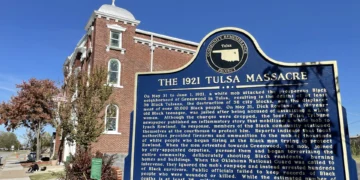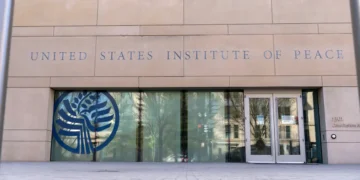Feb 25, 2025 Story by: Editor
OAKLAND — The push by community leaders and elected officials for former Congresswoman Barbara Lee to run for mayor appears to be unfolding as planned.
Her entry into the race quickly led most viable contenders to step aside, leaving a clearer path for the progressive figure in the run-up to the April 15 special election.
At 78, Lee is coming off a 26-year tenure in Congress and has consistently framed her mayoral run as an effort to steer Oakland in the right direction. However, critics have raised concerns about her familiarity with local governance.
As she campaigns, Lee will need to reassure voters of her grasp on the city where she studied five decades ago but has spent limited time residing in during her years representing the East Bay in Washington, D.C.
Last week, she unveiled her policy platform, outlining broad proposals such as forming a team to create “a new, coordinated framework” for tackling homelessness and cutting “bureaucratic inefficiencies” that hinder sworn police officers from patrolling.
“Police officers should prioritize investigating gun crimes, arresting dangerous fugitives and ending gun violence,” her public safety agenda states. In an interview, she also emphasized her intent to scrutinize the excessive overtime costs incurred by officers.
Her platform further underscores ethics, transparency, and accountability, referencing the corruption scandal involving former Mayor Sheng Thao.
During Thao’s recall efforts in the fall, Lee opposed the move, even though voters were already aware of the former mayor’s links to an FBI investigation. However, since Thao was charged with felonies in January, Lee has sought to distinguish herself from her predecessor.
With the election approaching in less than two months, Oakland’s City Hall is currently preoccupied with managing a financial crisis, which has led to layoffs of 100 city employees, fire station closures, and the slashing of $2.6 million in funding for key local nonprofits.
The winner of the 10-candidate mayoral race—widely considered to be a contest between Lee and former Council Member Loren Taylor—will be expected to swiftly begin shaping a new city budget for the next two years.
Oakland’s budget currently stands at approximately $4.2 billion, but officials are now aggressively seeking reductions after years of temporary fixes.
Lee has taken a firm stance against job cuts as part of this process.
“Laying off people,” she stated, “would be the last sort of cut I would ever want to make. We need to get this budget on track and increase revenue — and make sure workers are not impacted.”
Her campaign, which launched in January, will not disclose its initial financial reports until March 6. Meanwhile, significant labor contributions have flowed into a San Francisco-based political committee, Supporters of Barbara Lee for Oakland Mayor 2025.
Since last month, the committee has received $50,000 each from Oakland’s two largest public-sector labor unions, SEIU 1021 and IFPTE Local 21, as well as $10,000 from the city’s firefighters’ union and another $10,000 from Pacific Gas and Electric Co.
Taylor, whose campaign had raised $57,000 by December 31, does not currently have any independent committees fundraising on his behalf.
To address the city’s financial struggles, Lee advocates for a forensic audit to uncover “waste in our departments.” She has also expressed strong support for increasing revenue and is backing a proposed sales tax measure set to go before voters in April.
Additionally, she plans to establish a new division within the mayor’s office focused on developing public-private partnerships.
When asked about which revenue sources are critical to the city’s financial health, Lee responded, “they all are,” adding that officials must ensure they are collecting revenue that is currently being missed, such as unpaid traffic fines and parking meter fees.
Although revenue from parking citations saw a slight decline in the first quarter of the current fiscal year, the city’s most significant recent revenue shortfalls have come from real estate transfer taxes and business license fees.
Lee cited the pandemic as a major contributor to Oakland’s economic challenges. However, she was skeptical of a measure proposed by Thao last summer, which aimed to accelerate the sale of the Coliseum to fund city salaries.
“That was just one example of the city ‘robbing Peter to pay Paul,’” Lee remarked.
“I’m not so sure (it) was the correct decision,” she said regarding Thao’s plan, which has taken much longer to execute than initially anticipated. Still, she expressed cautious optimism, stating, “From the conversations I’ve had with people,” she believes the sale will ultimately be finalized.
Lee supports the city’s Ceasefire strategy, which seeks to curb violence through intervention efforts and negotiations, among other approaches. She wants this to remain a priority for the Oakland Police Department, especially as budget constraints delay the hiring of additional officers.
Currently, the department has 683 sworn officers, whereas the ideal number would be 850. However, Lee acknowledged she has “no false conclusions” about achieving that staffing goal under present financial conditions.
As mayor, she plans to conduct a hiring process for key city positions rather than automatically retaining the current administration.
She is also particularly interested in forming a new committee to evaluate Oakland’s system of governance, which allows the mayor to appoint key city officials but grants the City Council final authority over the budget. The mayor can only cast a vote in the event of a tie.
Lee declined to comment on Taylor’s campaign. Both candidates have opted against forming ranked-choice voting alliances with other contenders in the race. Source: The Mercury News
















